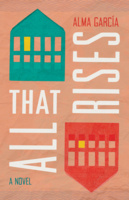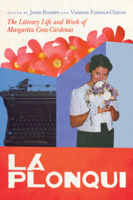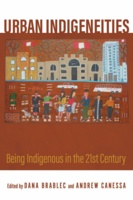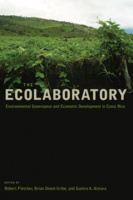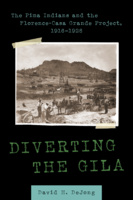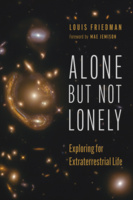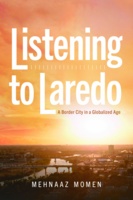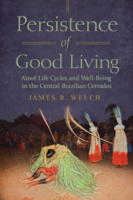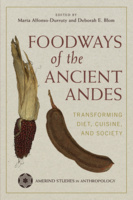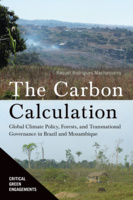The University of Arizona Press is the premier publisher of academic, regional, and literary works in the state of Arizona. They disseminate ideas and knowledge of lasting value that enrich understanding, inspire curiosity, and enlighten readers. They advance the University of Arizona’s mission by connecting scholarship and creative expression to readers worldwide.
All That Rises
A Novel
Two neighboring families in El Paso, Texas, have plunged into a harrowing week. Rose Marie DuPre has abandoned her family. Across the street, Jerry Gonzalez and his family struggle with the sudden arrival of a difficult, long-lost sister. Even Lourdes, the Mexican maid who works in both houses, finds herself entangled in secrets, lies, and border politics that blur every boundary between them. All That Rises asks what it means to belong—to a family and to the world beyond.
Chicana Portraits
Critical Biographies of Twelve Chicana Writers
This innovative collection details critical biographies of twelve key Chicana writers, offering an engaging look at their work, contributions to the field, and major achievements. Portraits of the authors are each examined by a noted scholar, who delves deep into the authors’ lives for details that inform their literary, artistic, feminist, and political trajectories and sensibilities. What results is a brilliant intersection of visual and literary arts that explores themes of sexism and misogyny, the fragility of life, Chicana agency, and more.
Latinos and Nationhood
Two Centuries of Intellectual Thought
Spanning from the early nineteenth century to today, this intellectual history examines the work of Latino writers who explored the major philosophic and political themes of their day, including the meaning and implementation of democracy, their democratic and cultural rights under U.S. dominion, their growing sense of nationhood, and the challenges of slavery and disenfranchisement of women in a democratic republic that had yet to realize its ideals.
Race, Place, and Reform in Mexican Los Angeles
A Transnational Perspective, 1890-1940
Mexico’s Valleys of Cuicatlán and Tehuacán
From Deserts to Clouds
Mexico’s Valleys of Cuicatlán and Tehuacán provides an accessible overview of an extraordinary region of Central Mexico. Through firsthand experience and engaging prose, the authors provide a synthesis of the environment, plants, and peoples of the valleys, showing their importance and influence as Mesoamerican arteries for environmental and cultural interchange through Mexico.
La Plonqui
The Literary Life and Work of Margarita Cota-Cárdenas
Celebrating more than forty years of creative writing by Chicana author Margarita Cota-Cárdenas, this volume includes critical essays, reflections, interviews, and previously unpublished writing by the author herself to document the lifelong craft and legacy of a pioneering writer in the field.
This volume’s essays analyze her work’s themes of Chicana identity, the Chicanx movement, and the sociopolitical climate of Arizona and the larger U.S.-Mexico border region, as well as issues of gender, sexuality, and identity related to the Chicanx experience over time.
Urban Indigeneities
Being Indigenous in the Twenty-First Century
Increasing numbers of Indigenous peoples are living in cities, yet the vast majority of studies focus solely on rural Indigenous populations. This is the first book to look at urban Indigenous peoples globally and present the urban Indigenous experience—not as the exception but as the norm. Dismissing the false idea that indigeneity is only “authentic” when it is practiced in remote rural areas, these wide-ranging essays show that a vigorous, vibrant, and meaningful indigeneity can be created in urban spaces too and offers perspectives and tools to understand a contemporary Indigenous urban reality.
The Ecolaboratory
Environmental Governance and Economic Development in Costa Rica
Despite its tiny size and seeming marginality to world affairs, the Central American republic of Costa Rica has long been considered an important site for experimentation in cutting-edge environmental policy. This book frames Costa Rica as an “ecolaboratory” and asks what lessons we can learn for the future of environmental governance and sustainable development both within the country and elsewhere.
Diverting the Gila
The Pima Indians and the Florence-Casa Grande Project, 1916–1928
Diverting the Gila explores the complex web of tension, distrust, and political maneuvering to divide and divert the scarce waters of Arizona’s Gila River among residents of Florence, Casa Grande, and the Pima Indians in the early part of the twentieth century. It is the sequel to David H. DeJong’s 2009 Stealing the Gila, and it continues to tell the story of the forerunner to the San Carlos Irrigation Project and the Gila River Indian Community’s struggle to regain access to their water.
Alone but Not Lonely
Exploring for Extraterrestrial Life
Humans have always been fascinated by the possibility of extraterrestrial life, often wondering if we are alone in the universe. Drawing on the author’s fifty years in the field, this book looks at the subject of extraterrestrial life, separating knowledge from conjecture, fact from fiction, to draw scientific and technical conclusions that answer this enduring question and examine the possibility of remotely exploring life on other worlds.
Listening to Laredo
A Border City in a Globalized Age
Nestled between Texas and Mexico, the city of Laredo was a quaint border town, nurturing cultural ties across the river, attracting occasional tourists, and populated with people living there for generations. Mehnaaz Momen traces Laredo’s history and evolution through the voices of its people. She examines the changing economic and cultural infrastructure of the city, its interdependence with its sister city across the national boundary, and, above all, the resilience of the community as it adapts to and even challenges the national narrative on the border.
Bennu 3-D
Anatomy of an Asteroid
This book, the world’s first complete (and stereoscopic) atlas of an asteroid, is the result of a unique collaboration between OSIRIS-REx mission leader Dante Lauretta and Brian May’s London Stereoscopic Company. Lauretta’s colleagues include Carina Bennett, Kenneth Coles, and Cat Wolner, as well as Brian May and Claudia Manzoni, who became part of the ultimately successful effort to find a safe landing site for sampling. The text details the data collected by the mission so far, and the stereo images have been meticulously created by Manzoni and May from original images collected by the OSIRIS-REx cameras.
Birds of the Sun
Macaws and People in the U.S. Southwest and Mexican Northwest
The multiple vivid colors of scarlet macaws and their ability to mimic human speech are key reasons they were and are significant to the Native peoples of the U.S. Southwest and Mexican Northwest. Although the birds’ natural habitat is the tropical forests of Mexico and Central and South America, they were present at multiple archaeological sites in the region yet absent at the vast majority. Leading experts in southwestern archaeology explore the reasons why.
Urban Imaginaries in Native Amazonia
Tales of Alterity, Power, and Defiance
Featuring analysis from historical, ethnological, and philosophical perspectives, this volume dissects Indigenous Amazonians’ beliefs about urban imaginaries and their ties to power, alterity, domination, and defiance. Contributors analyze how ambiguous urban imaginaries express a singular view of cosmopolitical relations, how they inform and shape forest-city interactions, and the history of how they came into existence, as well as their influence in present-day migration and urbanization.
No Place for a Lady
The Life Story of Archaeologist Marjorie F. Lambert
Marjorie Lambert’s life story is intricately entwined in the development of archaeology in the American Southwest. In Shelby Tisdale’s compelling biography, Lambert’s work as an archaeologist, museologist, and museum curator in Santa Fe comes to life and serves as inspiration for today.
Juan Felipe Herrera
Migrant, Activist, Poet Laureate
This book is a wide-ranging collection of critical approaches on the highly accomplished poet Juan Felipe Herrera, who transcends ethnic and mainstream poetics. The chapters in this book expertly demonstrate the author’s versatility, resourcefulness, innovations, and infinite creativity.
Becoming Hopi
A History
Becoming Hopi is a comprehensive look at the history of the people of the Hopi Mesas as it has never been told before. The product of more than fifteen years of collaboration between tribal and academic scholars, this volume presents groundbreaking research demonstrating that the Hopi Mesas are among the great centers of the Pueblo world.
Where We Belong
Chemehuevi and Caxcan Preservation of Sacred Mountains
This comparative work dispels the harmful myth that Native people are unfit stewards of their sacred places. This work establishes Indigenous preservation practices as sustaining approaches to the caretaking of the land that embody ecological sustainability, spiritual landscapes, and community well-being.
Finding Right Relations
Quakers, Native Americans, and Settler Colonialism
Colonialism has the power to corrupt. This important new work argues that even the early Quakers, who had a belief system rooted in social justice, committed structural and cultural violence against their Indigenous neighbors.
Pyrocene Park
A Journey into the Fire History of Yosemite National Park
Persistence of Good Living
A’uwe Life Cycles and Well-Being in the Central Brazilian Cerrados
For the Indigenous A’uwẽ (Xavante) people in the tropical savannas of Brazil, special forms of intimate and antagonistic social relations, camaraderie, suffering, and engagement with the environment are fundamental aspects of community well-being. In this work, the author transparently presents ethnographic insights from long-term anthropological fieldwork in two A’uwẽ communities, addressing how distinctive constructions of age organization contribute to social well-being in an era of major ecological, economic, and sociocultural change.
Mexican Waves
Radio Broadcasting Along Mexico's Northern Border, 1930–1950
Indigenous Justice and Gender
This new book offers a broad overview of topics pertaining to gender-related health, violence, and healing. Employing a strength-based approach (as opposed to a deficit model), the chapters address the resiliency of Indigenous women and two-spirit people in the face of colonial violence and structural racism.
Walking Together
Central Americans and Transit Migration Through Mexico
Sitting at the intersection of border studies, immigration studies, and Latinx studies, this concise volume shows how Central American migrants in transit through Mexico survive the precarious and unpredictable road by forming different types of social ties, developing trust, and engaging in acts of solidarity. The accessible writing and detailed ethnographic narratives of different associations, ties, and groups that migrants form while in transit weave together theory with empirical observations to highlight and humanize the migrant experience.
Revealing Rebellion in Abiayala
The Insurgent Poetics of Contemporary Indigenous Literature
Foodways of the Ancient Andes
Transforming Diet, Cuisine, and Society
Black Women and da ’Rona
Community, Consciousness, and Ethics of Care
Deliberately writing against archival erasure and death-driven logics of anti-Blackness, this volume chronicles Black women’s aliveness, ethics of care, and rituals of healing. The nineteen contributors from interdisciplinary fields and diverse backgrounds situate Black women’s multidimensional experiences with COVID-19 and other violences that affect their lives. The stories they tell are connected and interwoven, bound together by anti-Black gendered COVID necropolitics and commitments to creating new spaces for breathing, healing, and wellness.
The Unequal Ocean
Living with Environmental Change along the Peruvian Coast
Based on a decade of ethnographic and archival research in Peru, this volume reveals how prevailing representations of the ocean obscure racialized disparities and the ways that different people experience the impacts of the climate crisis. The book also addresses expanding scholarly interest in the world’s oceans as sites for thinking about social inequities, environmental politics, and multispecies relationships.
Carbon Sovereignty
Coal, Development, and Energy Transition in the Navajo Nation
This deep dive into the coal industry and the Navajo Nation captures a pivotal moment in the history of energy shift and tribal communities. Geographer Andrew Curley spent more than a decade documenting the rise and fall coal, talking with those affected most by the changes—Diné coal workers, environmental activists, and politicians.
Households on the Mimbres Horizon
Excavations at La Gila Encantada, Southwestern New Mexico
This book explores variability in Mimbres Mogollon pithouse sites using a case study from La Gila Encantada to further our understanding of the full range of pithouse occupations in the area. Because the site is away from the major river valleys, the data from excavations at the site provides valuable information on the differences in cultural practices that occurred away from the riverine villages, as well as environmental differences, economic practices, and social constructs.
Border Water
The Politics of U.S.-Mexico Transboundary Water Management, 1945–2015
Border Water places transboundary water management in the frame of the larger binational relationship, offering a comprehensive history of transnational water management between the United States and Mexico. As we move into the next century of transnational water management, this important work offers critical insights into lessons learned and charts a path for the future.
The Carbon Calculation
Global Climate Policy, Forests, and Transnational Governance in Brazil and Mozambique
The Carbon Calculation critically highlights the ways in which politics has reinforced a scientific focus on one possible solution to the problem of climate change—namely those that largely absolve the industrialized world from undertaking politically painful transformations in its own economic model.
Occupying Our Space
The Mestiza Rhetorics of Mexican Women Journalists and Activists, 1875–1942
Lotería
Nocturnal Sweepstakes
My Heart Is Bound Up with Them
How Carlos Montezuma Became the Voice of a Generation
Centering historically neglected Indigenous voices as its primary source material, author David Martínez shows how Carlos Montezuma’s correspondence and interactions with his family and their community influenced his advocacy—and how his important work in Arizona specifically motivated his work on a national level.
Voluntourism and Multispecies Collaboration
Life, Death, and Conservation in the Mesoamerican Barrier Reef
An ethnographic exploration of the world of conservation voluntourism and relations of care between humans and vulnerable species on the Honduran Bay Island of Utila.
Running After Paradise
Hope, Survival, and Activism in Brazil's Atlantic Forest
This book looks at social-environmental activism in one of the world’s most important and threatened tropical forests—Southern Bahia, Brazil. It explores what it means to be in and of a place through the lenses of history, environment, identity, class, and culture. It uncovers not only what separates people but also what brings them together as they struggle and strive to create their individual and collective paradise.
Chicano-Chicana Americana
Pop Culture Pluralism Starring Anthony Quinn, Katy Jurado, Robert Beltran, and Lupe Ontiveros
This exciting new cultural history documents how Mexican Americans in twentieth-century film, television, and theater surpassed stereotypes, fought for equal opportunity, and subtly transformed the mainstream American imaginary. Through biographical sketches of underappreciated Mexican American actors, this work sheds new light on our national character and reveals the untold story of a multicentered, polycultural America.
Reading the Illegible
Indigenous Writing and the Limits of Colonial Hegemony in the Andes
Translation and Epistemicide
Racialization of Languages in the Americas
From the early colonial period to the War on Terror, translation practices have facilitated colonialism and resulted in epistemicide, or the destruction of Indigenous and subaltern knowledge. This book discusses translation-as-epistemicide in the Americas and providing accounts of decolonial methods of translation.


